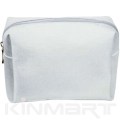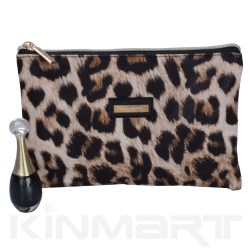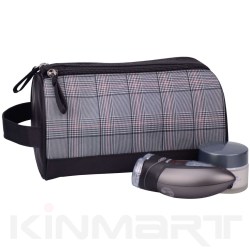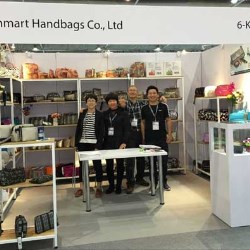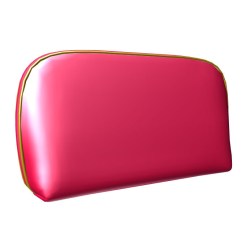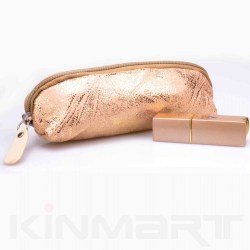If this is your company, CONTACT US to activate Packbase™ software to build your portal.


Kinmart is a specialized bag manufacturer and can custom make almost any bag according to a clients detailed requirements. The Chinese company can customize any of its bags whether cosmetic, special occasion, make-up, tote, handbag or a promotional gift bag, to suit the requirements of the customer.
It's a simple process. Choose the bag that you like, then advise which areas you wish to change.
Some bags can be customized through the addition of company branding or a logo, whereas other bags can be transformed completely by changing the fabric, colors or accessories.
There are a number of decoration techniques available which can make the bag's logo stand out:
Silk Screen Imprint
This method typically uses a fabric stretched tightly over a frame whereby images are created by blocking parts of the screen using various techniques. Ink is forced through the open areas of the screen onto the surface of the object. A separate screen must be created for each color to be printed and colors must be applied in passes allowing drying time between each. This is the most common method of imprinting onto promotional items.
It can be applied to almost all fabrics and offers a sound printing effect for smooth surface fabrics.
Four-Color Process Printing (CMYK)
Four-color process printing is a process in which we start with finished full-color artwork and separate out the three subtractive primary colors of yellow, cyan, magenta, plus black. A program creates separate films that are then printed with special process inks and the resulting print appears just like the original artwork.
The process can be applied to almost all fabrics.
Thermal transfer
This is a technology that uses heat to deposit dye or resin onto a finished product. It works by using heat and pressure to transfer the ink off the ribbon and onto the substrate that it is in contact with. Again, it can be applied to almost all fabrics.
Sublimation
This is a printing method in which the color (toner or ink) is thermally converted to a gas that hardens on the special substrate used by the printer. When printers use this process, the output appears in the form of soft-edged dye spots that produce smooth, continuous tones. It is a newer process used on a wide variety of materials.
Embroidery
A design stitched onto a material through the use of high speed, computer controlled sewing machines. Artwork must first be "digitized," which is the specialized process of converting two-dimensional artwork into stitches or thread. The digitizer must actually recreate the artwork using stitches. Then it programs the sewing machine to sew a specific design, in a specific color, with a specific type of stitch. This is the process known as digitizing.
Embroidery is commonly used as it is suitable for all fabrics and leather. It is not suitable for clear PVC.
Metal Engraving/Embossing
The logo is formed by injecting boiling metal liquid into the presetup logo Mould. After cooling down and further several processes like polishing, stenciling, etc. This is commonly applied to metal badges, metal zipper pullers.
Lasering Logo
This is the general term used for incising lines directly into a metal plate or, in the case of wood engraving, an end grain block of hard wood. Laser engraving uses a laser to vaporize a preprogrammed pattern into the surface of the material. It is used for metal plates and metal zipper pullers.
Rubberized Logo
An option for Badges, Zip Pulls, and Decorative Accessories.
Embossing / Debossing
Embossing impresses an image into the surface in relief creating a raised image. Debossing is just the opposite and creates an image pressed into the surface of an object.
It's often chosen for Leather and PVC leather. It's not suitable for oxford nylon fabrics.
Jacquard
A pattern option for fabrics - either the outer or the inner.
Woven Label
Another option for fabrics - both outer or inner.
Crystal or Rhinestone
These can be applied to the main body fabrics to add a touch of glam!







